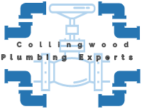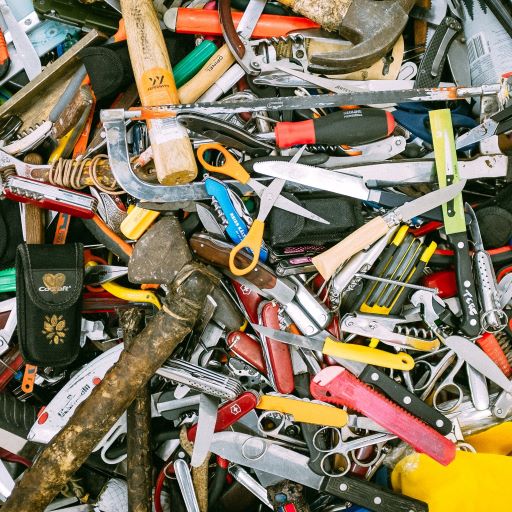Plumbing issues vary from simple to complicated problems. There are times when hiring a plumber is not immediately needed and it does not have to be an expensive choice. For example, if your faucet is slightly leaking or if you have minor clogged drains at home, these plumbing issues can be easily fixed by yourself with the right tools and some experience. This article discusses hiring a professional plumber vs. DIY and factors to consider.
DIY Plumbing: What are the Pros and Cons?
The following are some of the pros and cons that may come with choosing to do the plumbing work yourself:
Pros
Lower costs will be associated. You can save up some money instead of hiring someone else for this task, especially if you only need help on occasion.
More freedom is experienced by doing things at your own pace. You can work around your schedule, so you won’t have to take a day off just for this matter.
Cons
If not done correctly, your problem is just going to get worse. The DIY approach may be time-consuming, so you need to know what you are doing if you don’t want another problem arising from the current one.
Requires a certain level of skill and knowledge, so proper guidance from someone who has plumbing skills is needed. If you are not familiar with plumbing basics, it is best to learn before starting on a specific task.
You need all the necessary tools and components that may require a more significant investment for your work. Buying new stuff can mean more money spent for a single time and you won’t use those tools anymore.
Examples of Why DIY Plumbing Approach can be Expensive and Time-Consuming
You can expect to spend more than you intended if the DIY approach is chosen and not done correctly. This means that there will be a need to spend more time and money to buy new components and tools, instead of paying once for the professional service.
Time spent on the task is also essential. If you are new to plumbing, it can take a while to finish the task and be done with it.
You can also expect to find yourself in a situation where you might have to call for help from a professional plumber after realizing that you don’t know what you are doing or when the problem gets more significant than what you expected.
Doing it yourself is also associated with a risk of not handling the fix correctly and then facing other issues, such as flooding due to faulty connections. These complications might cost even more money because it can be a pricey repair for the faulty outcomes caused by lacking basic knowledge and experience. So if you don’t have sufficient skills talking to a professional in the first place instead of trying to deal with them on your own will be preferable.
Professional Plumbing Services: What are the Pros and Cons?
Hiring a professional ensures that the job is done properly, even you have to pay more for this service. There are obvious benefits to calling an expert.
Pros
You don’t have to risk making the problem worse if you are not an experienced DIYer or do-it-yourselfer. A professional will ensure that the task is done correctly for the very first time and your plumbing issues are resolved and forgotten.
A professional can also deal with more complicated tasks that are not advisable to be done by someone who has no previous experience in plumbing work.
You don’t have to purchase tools since this is already included in the price of hiring a professional plumber.
Hiring a professional is time-saving as the problem is fixed immediately. Plumbers are pretty conversant with plumbing and building codes and since they work locally they build up their reputation and in most cases do high-quality jobs, so you can rest assured that the job will be done well.
Cons
The service cost can be relatively expensive. Hiring a professional plumber will cost more because it includes paying them for their time and experience when dealing with plumbing issues and problems.
Professional service providers may not be available all the time, which means waiting until they can come and fix your problem.
Below are some common plumbing issues that can be dealt with by DIY but not always and it depends on the situation, skills, experience, availability, and complexity of the issue.
Clogged drains
This is a common issue for homeowners, especially if you don’t unclog it on time or you put too much stuff inside the drain that it gets clogged.
Dripping faucets
Dripping faucets can waste gallons of water for months; for this reason, it is essential to fix the problem right away if you don’t want too much wastage.
Running toilets
A running toilet may lead to spending more on water bills and a bad odor in the bathroom because it will continuously run until it is fixed, thus wasting a lot of water.
Low pressure or no hot water at all
Low pressure means that there’s not enough volume going through the pipes, which can cause damage to your fixtures and appliances and be a significant inconvenience for a household
Following plumbing issues are not recommended to fix by yourself but call a professional.
Leaking pipes
Leaky pipes signify that you have rusting iron or old galvanized steel, which can be dangerous due to the emitted gases.
Water Heater
Water heaters may give you hot water, but there is a chance of not having enough hot water for more than one person in your household and might need replacing if it breaks down.
Flooding
It can happen, especially when we get heavy rainfalls or snow melts. This is why it’s always best to ask for help from a professional, so this problem doesn’t escalate into something more significant such as broken appliances and fixtures on top of flooding on your property.
Here are the standard plumbing maintenance rules when dealing with plumbing.
Turn off Water
Turn off the main water supply when working on the pipes. This is one of the most important rules because it can save you from flooding if any pipe or fixture that has been recently worked on gets broken. So, make sure to turn this back on after everything is done.
Keep a plunger handy
Keep a plunger handy in case there’s a clogged drain, and you have no chemicals at hand to deal with it. Use a DIY solution of baking soda and vinegar so you don’t spend too much money hiring a professional for something simple such as a clogged drain which can be quickly dealt with using some household products.
Drain water from the water heater tank
Drain some water out of your water heater tank every six months or once per year, depending on how often you use it to check for corrosion or sediment buildup. This can be done by turning off the power to the heater, draining some water out, then turning it back on.
Ensure you have a reliable plumber
Keep your plumber’s phone number handy because you never know when you might need their services again, especially if you are not good at handling plumbing issues yourself or are not comfortable dealing with them without professional help.
Don’t pour grease down the drain
Refrain from pouring grease down the drain as this tends to accumulate over time and form clogs that are hard to remove, especially if you don’t have any strong chemicals at hand right away after noticing this problem.
Inspect your faucets and pipes
Make sure that there are no leaks in your faucets and pipes so that you won’t spend unnecessary money on water bills and don’t damage your fixtures and appliances.
Soften Hard Water
Hard water can be softened to reduce any mineral deposits which will clog your plumbing fixtures over time. Use the right chemicals to keep your appliances safe, free of rust and buildup of minerals inside them after softening hard water.
Minimize Chemical Use
Using too many chemical cleaners might get rid of dirt, but it might also alter the natural pH balance in pipes. The chemicals will make the pipes weaker than they were before because of corrosion or erosion. This is caused by excessive amounts of lye, for example, which isn’t suitable for your plumbing system. Try not to use this stuff more than you need to otherwise you might end up spending a lot of money on replacing some fixtures if they corrode or chip apart
Conclusion:
A DIY solution can be a better choice if the problem is quick and straightforward to fix without needing too much help from professionals. On the other hand, professional plumbers are most recommended for complicated plumbing issues that you cannot handle yourself. Professional plumbers despite being costly will save you time and ensure that the job is done correctly. They ensure that all plumbing issues are fixed and minimize chances of them occurring in the future.

